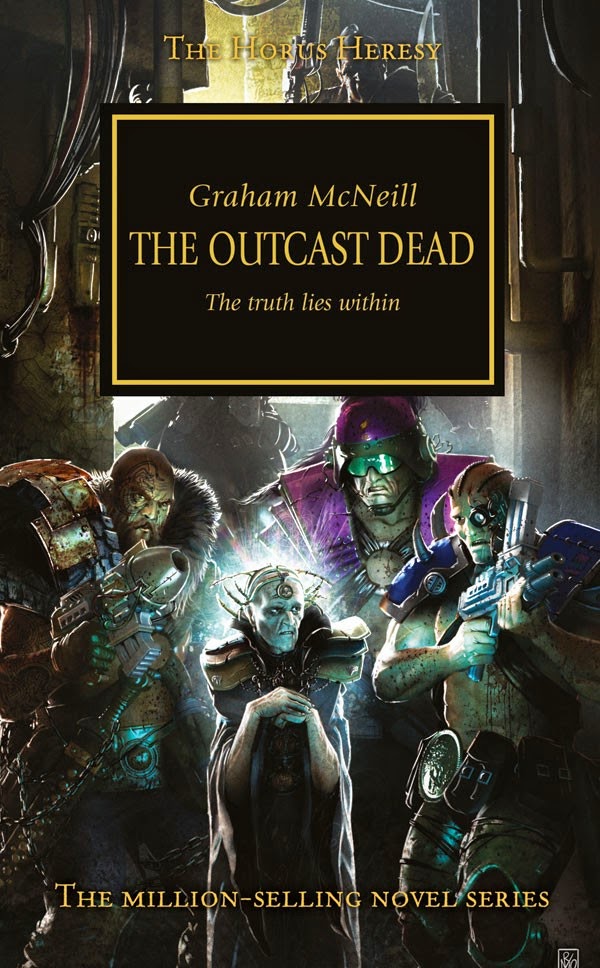I'm trying to catch up with my Horus Heresy Review series, but right now my reading is outpacing my analyses. The next in the series is The Outcast Dead by Graham McNeill. This is one that I'd heard whispers about, so was excited to read it. I was not disappointed in that the book shows a lot of Terra and the Imperial Palace in particular, not to mention insight into the Astropaths, a pretty underrepresented group. Anyway, as always, spoiler alert ahead.
I've always been a fan of the small group fighting against the odds stories. This novel puts an interesting twist on that trope by having the small elite group be ambiguous and not demonstrably good or evil. They have been imprisoned somewhat unjustly, because their parent legions have turned traitor. And while when they are unsure of which side to choose once they gain their freedom, the World Eaters in particular display loyalty to legion over the Emperor, showing a microcosm of how the Heresy came to be. The leader of the group is a member of the Thousand Sons, who are in themselves a rather tragic and ambivalent legion.
It is Magnus's attempt to contact the Emperor that sets the events of the book into play, and we see just how catastrophic Magnus's well intended warning is - it nearly destroys the Astropaths in their entirety, making millions on Earth go mad through the psychic backlash. To me, this gave a little more closure to A Thousand Sons and why Magnus accepts his fate - that novel didn't show the extent of the damage Magnus caused, though he was made aware of it.
I think, story aside, two of the really cool aspects of this book are the rarely shown pieces of the mythology we get some insight to - namely the Emperor and the Space Marine predecessors, the Thunder Warriors. The Emperor presents himself in dreams, and shows glimpses of the future and his foreknowledge that he will fight Horus and die. The whole sequence calls into question just how much the Emperor foresees and his motivations for allowing things to go as they do.
The Thunder Warriors are also shown, and explain quite handily how the Emperor conquered Terra; their martial prowess lies somewhere between an Astartes and a Primarch, and arguably the equal (or predecessor) of of a Custodes.
In the end, while Kai Zulane's transformation from coward to instrument of the Emperor and martyr for the Imperium is interesting, honestly it's the glimpses of the Imperial Palace as a country on its own and the bits of backstory we get for the legions and Imperium as a whole that I take away from this novel. The plot of the Heresy itself is not moved forward in the book, but we get some interesting tid bits to expand on the cannon, like redeemable World Eaters characters who show more characteristics beyond simple butchers.


No comments:
Post a Comment